Langreview Kurzkritik English Version Fakten + Credits
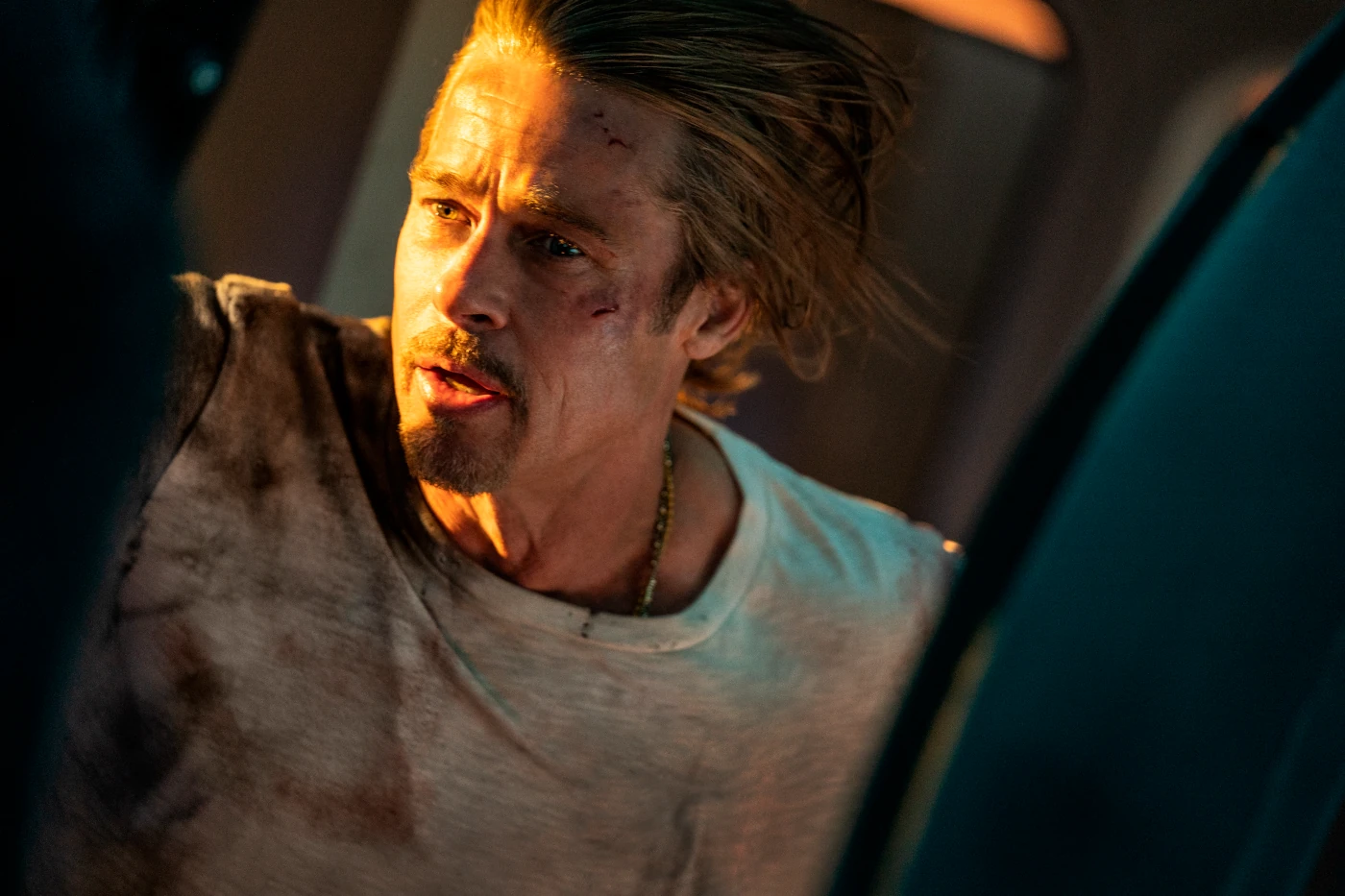 In 1975, the Bullet Train raced through the Japanese capital Tokyo and the police had to worry about over 1,500 souls who were threatened with death. Also known as KILLER TRAIN, the disaster film is one of the best-received films in Japanese film history. Even though Constantin Film released it in German cinemas in 1976, the complete version has unfortunately never been shown in dubbed versions in this country. Only 94 minutes of the original 153 minutes were dubbed. Despite the same title and a similar basic premise, however, the ’75 version and the now released film version have nothing in common. While the Japanese film can be considered a predecessor of SPEED, David Leitch’s work is based on the novel by Japanese author Kōtarō Isaka, which was published in 2010 under the title Maria Beetie and is now also available in German stores under BULLET TRAIN.
In 1975, the Bullet Train raced through the Japanese capital Tokyo and the police had to worry about over 1,500 souls who were threatened with death. Also known as KILLER TRAIN, the disaster film is one of the best-received films in Japanese film history. Even though Constantin Film released it in German cinemas in 1976, the complete version has unfortunately never been shown in dubbed versions in this country. Only 94 minutes of the original 153 minutes were dubbed. Despite the same title and a similar basic premise, however, the ’75 version and the now released film version have nothing in common. While the Japanese film can be considered a predecessor of SPEED, David Leitch’s work is based on the novel by Japanese author Kōtarō Isaka, which was published in 2010 under the title Maria Beetie and is now also available in German stores under BULLET TRAIN.
Leitch, who is now considered a master of modern action cinema, once again devotes himself to staging seemingly impossible stunt sequences. The former stuntman has already clearly proven with DEADPOOL 2, ATOMIC BLONDE, JOHN WICK and FAST & FURIOUS: HOBBS & SHAW that he not only celebrates the genre in front of the camera, but also wants to take the era of explosive films to a new level off it.
The problem is we’re on a train, but the opportunity is we’re on a train.David Leitch in the PH on the film
Despite all the years of experience, the director saw it as a great challenge to stage an entire flick solely on a train, which is known to offer little space for gruelling and spectacular action sequences. In order to nevertheless live up to his quality standards, Leitch provides us with a cast that is already well versed in the genre. In addition to Brad Pitt, Aaron Taylor-Johnson and Brian Tyree Henry, all of whom have left their mark on recent film history with their entertainment cinema, Sandra Bullock is also on board the Bullet Train, thus bringing in a certain connection to the aforementioned Japanese counterpart in the remotest sense.
Here’s what it’s all about
Ladybug finally wants to do everything differently. In his last jobs as an assassin, someone always got killed without him meaning to. On his next assignment, however, the relentless killer wants to escape his streak of bad luck and voluntarily refrains from carrying a gun. However, if he had known that a few more hitmen would coincidentally converge on board the Shinkansen train, in which a suitcase is hidden to be stolen, he would probably have thought twice about whether this decision was so advisable. At several hundred kilometres per hour, there is no chance of escape and a couple of unexpected murders set off a chain of violence that pushes Ladybug to the limits of his abilities and involves a battle of life and death. The streak of bad luck refuses to end, but will it cost his own life this time?
Review
Leitch delivers what he promises and once again gives us a superior spectacle of an extremely high standard in his latest coup. He knows how to combine humour and violence brilliantly, so that comedy and action form a unique symbiosis. Even if his films are not exactly brimming with content brilliance and profundity, he always delivers perfect popcorn cinema. In doing so, he has recognised that audiences are tired of the eternally soft-soap FSK 12 children’s films and instead value the complete exaggeration that used to be seen only in horror films, even in other branches of the film industry. Mercilessly, therefore, we are confronted with macabre and blood-soaked fight choreographies that can arouse pain even in the viewer. Even the throwing of a glass bottle can come across as much more brutal than a stab with a knife, since the days of crash and sugar glasses are long gone.
BULLET TRAIN is characterised in every respect by its inventiveness in the depiction of violence. Be it the multitude of different weapons, the breadth of different ways to kill someone or the wealth of ideas in the set design – nothing is left to chance and Leitch proves everywhere that boredom is not his style. The work comes across as loud and exciting and not infrequently establishes Tarantinoesque sequences. But other film and series references also find their place and so no one will miss the allusion to the red wedding from GAME OF THRONES or even the terrible parallels to TRAIN TO BUSAN. Moreover, cinematic overlaps are not only characterised by the similarity in content, but also by many charming acting guest appearances, some of which were modelled on earlier roles of the characters and fit perfectly into the overall plot. Similar to the Japanese counterpart of ’75, top stars even take turns in the smallest supporting roles.
Big show – up close and personal
Accompanied by an almost comic-like score that repeatedly makes use of a wide range of popular songs throughout the film, thus bringing GUARDIANS OF THE GALAXY airs and graces, the team provides us with an entertaining show that hardly gives us time to catch our breath in more than 120 minutes. Leitch’s regular cinematographer Jonathan Sela is once again responsible for capturing the sequences with impressive camera movements and spectacular images. As we have come to expect from him, this is again achieved to perfection. Even fast movements are captured precisely, which is also due to the fact that wide-angle shots are often dispensed with and the camera prefers to focus precisely on the essential movements and events. At the same time, the shots live from an excellent design of the high-speed train, which features a colourful and nuanced spectrum of colours and is thus somewhat reminiscent of GUNPOWDER MILKSHAKE.
Similar to what we know from DEADPOOL, BULLET TRAIN lives from a multitude of ironic dialogues that serve the sole purpose of shallow entertainment. Screwed-up metaphors, empty phrases and Asian wisdom serve as a plaything to clearly signal to the audience that absolutely nothing in this work can be taken seriously. This also explains why characters believed to be dead keep returning and Leitch gets his kicks out of leading the audience around by the nose.
 Conclusion
Conclusion
The time of the shallow action-baller is long gone and so Leitch’s latest stroke of genius joins the ranks of crude and hard-to-digest genre films that make no effort to be more than they are: Pure violence combined with shallow humour, big stars and an unusual setting. Pure entertainment art, which, however, seems somewhat overloaded in the amount of countless sequences and thus almost monotonous again. Although there is no limit to creativity, so that Leitch can unpack his entire spectrum of stunt know-how, he sometimes seems to forget that fights alone do not make a good film. Nevertheless, BULLET TRAIN is a really successful spectacle that offers a good time and should definitely be consumed in the cinema in view of the fabulous shots.
How did you like the movie?



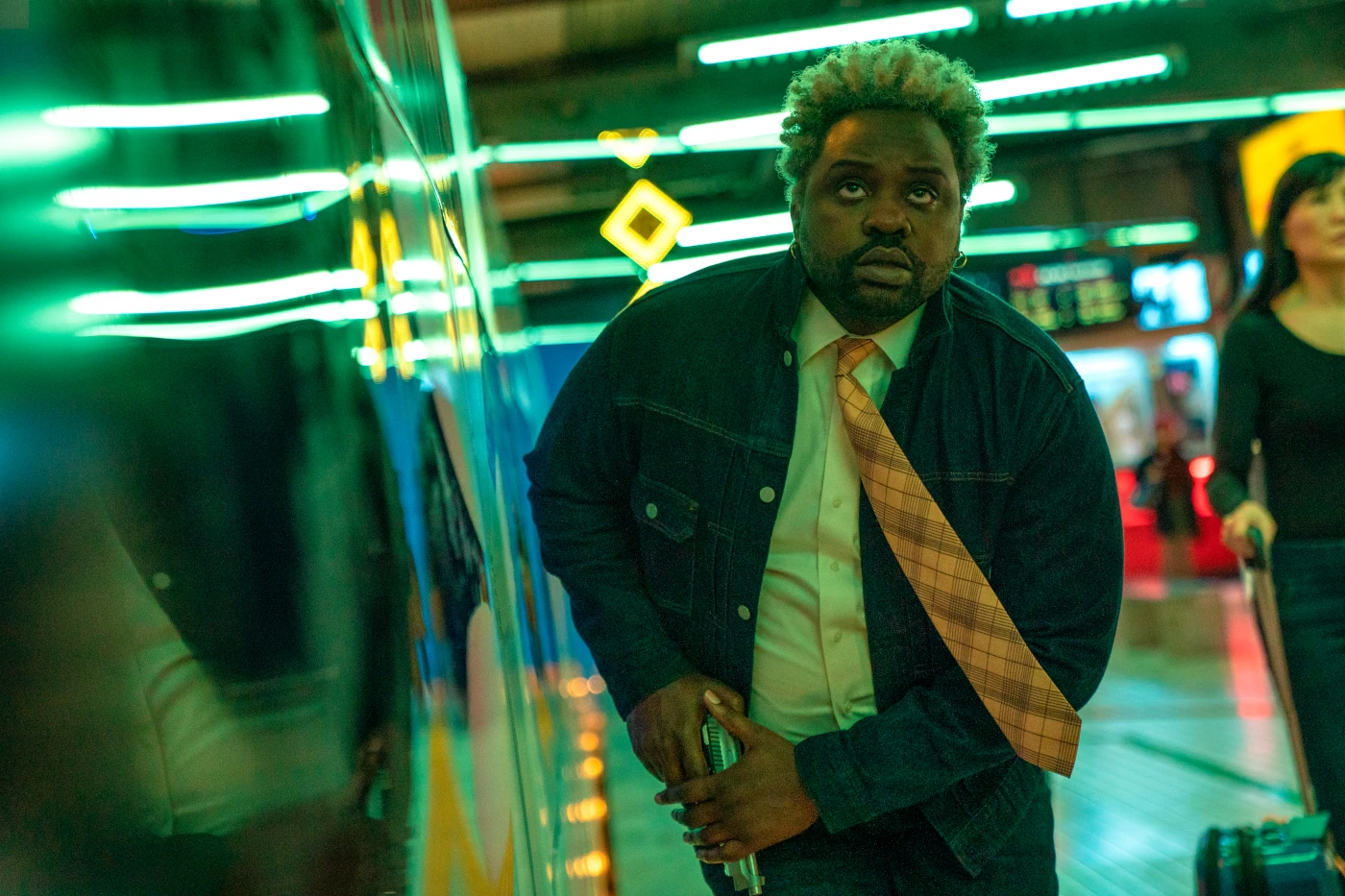
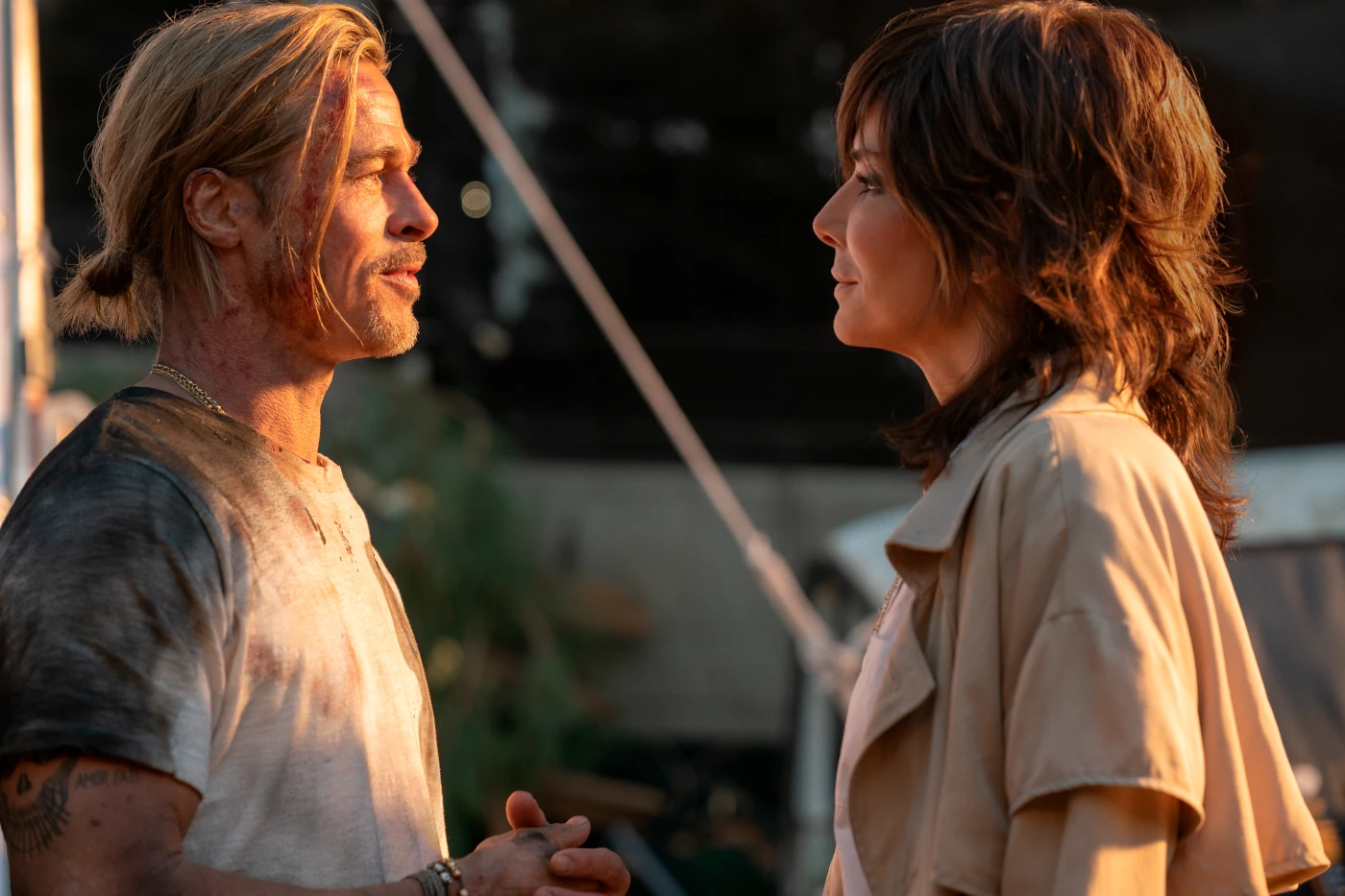






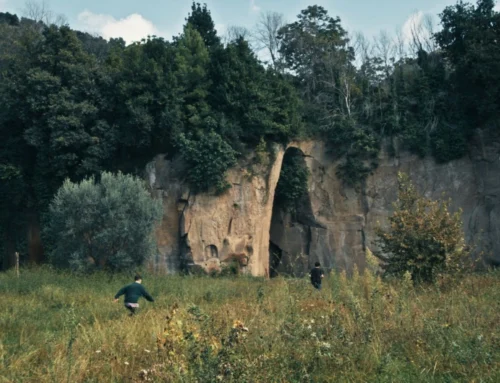
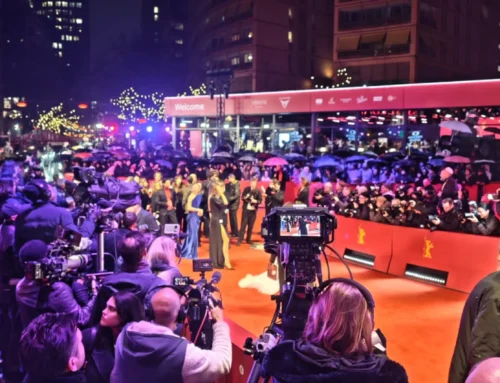
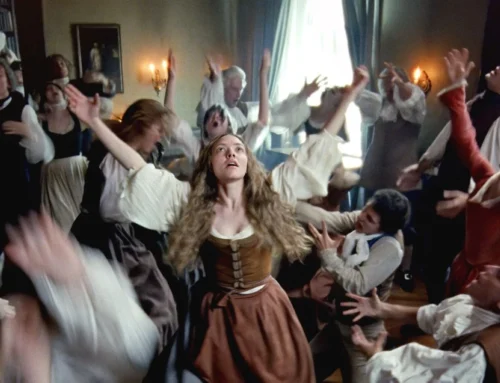
Hinterlasse einen Kommentar